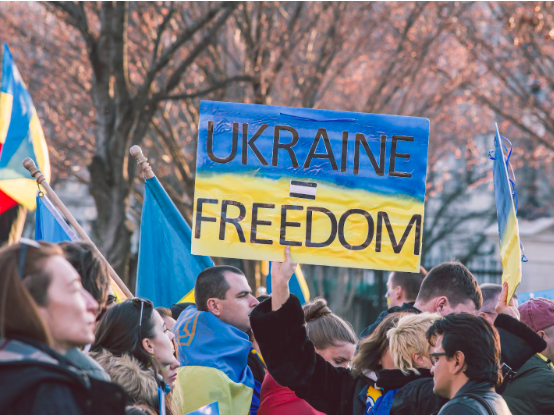
Humanities and Geopolitics – What’s the Connection?
It’s been hard to ignore what’s happening in the world right now, and many of us are wondering how the war in Ukraine affects us right here in the US. You may be feeling scared, anxious, or even full of doubt about the future, and that’s completely understandable — and even normal under these circumstances. If the humanities have taught us anything, it’s that when looking at situations like these, the best we can do is rally support and make sense of what seems to be a senseless situation. Only then can we understand the motives behind the actions and see hope for a better future, with a possible resolution.
Before we take a look at what role the humanities play in geopolitical affairs, we need to understand what geopolitical affairs are. Simply put, it is international relations with a “greater emphasis on geographical factors such as location, resources, and accessibility.” Where a country is located, what it imports and exports, what resources are native to that country (water, materials, etc.), surrounding regions, etc. can greatly influence how that country fares in a lot of different ways, from trade to war.
So where do the humanities come in? Studying the humanities is all about understanding what it means to be human. By looking at geopolitical affairs, we look at a country from a humanistic perspective: how will the people of that country react in certain situations? How can we help them if needed? Humanities also allow us to take a look back at history to see if we can learn from our past mistakes and progress so that our ways of thinking can evolve and broaden positively.
When we look at the crisis in Ukraine from a humanities perspective, what we see is human suffering that isn’t so far removed from our own lives. What we see is how a situation unfolding far away can have drastic consequences on our doorstep. Look at the prices of gas. They are increasing and will continue to do so as a direct result of the United States stopping all Russian oil imports.
The cost of other sources of energy will also increase as a result of higher demand, and these situations will affect everyone on a global scale; including the average American. These ripple effects could be long-lasting and life-changing for so many, and for those living below the poverty line, this impact could be devastating.
Studying the humanities can help us to be as prepared as possible for situations like these because subjects such as history, geography, and politics all fall under the umbrella of humanities. We can look at similar events in the past and see how those affected civilians in neighboring countries and others on a global scale. We can see what the cost of war was in terms of the price of goods, food, and fuel increasing. And we can analyze what the repercussions were, in terms of shifts in demographics and immigration /emigration. For example, over 4.8 million refugees have since left Ukraine as of April 2022, a shocking number once you realize that is the entire population of Louisiana.
Acknowledging that we are all a part of this global event is the first step toward a potential resolution. We cannot think that just because this crisis is happening halfway across the world that we, in Maryland, are not affected. We are and will continue to be affected as long as this crisis continues. For now, let’s educate ourselves on the reality of the situation so that we can be better prepared for what is to come. Humanities can shine a light on past efforts and help guide us toward actions that can positively impact us now and in the future.
To learn more about how the humanities can help shed light on the crisis in Ukraine, reach out to Wendell Johnson at wjohnson5@ccbcmd.edu today.

